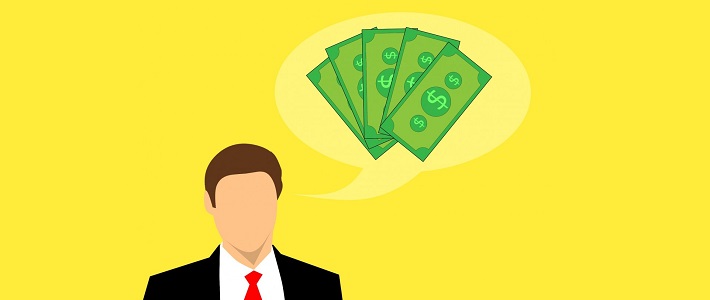Sports Betting Guide
How to use behavioural economics in sports betting?
What is behavioural economics? How can punters apply it in sports betting, and how can it help you gain the edge over your online bookie? Let's find out together in today's betting guide.

Introduction
First of all, «behavioural economics», what is it, and why are we talking about it in a sports betting guide? Well, the term is derived from the book «Misbehaving: The Making of Behavioural Economics» by Richard H. Thaler, where the author explains that people are biased into believing how the idea of traditional economics works in reality. The topic was later picked up by some betting experts & found its application. Let's get right into it.
Efficient market hypothesis & odds value
We have already talked about the role of the efficient market hypothesis in one of our previous sports betting guides. In short, EMH states that every economic market (and market in general) always strives for an equilibrium where all the prices are correct. That being said, each price on the market represents a true value, neither over- nor under-estimated. The same concept applies to sports betting, where we also have markets & prices (in the form of odds). Assume the hypothesis is right and the odds represent the true value, then making profits would simply be impossible in the long run. Well, not that it would be completely impossible, but profits would be subject to luck rather than skill. Obviously, we can argue back and forth, but that is not the point here.
Pricing the outcomes is a hard & complicated process. Even if a bookmaker knew the true probability, the odds for that particular event would differ too much from the market. Doing otherwise would simply put that bookmaker at a disadvantage & provide an arbitrage option. Thus, in reality, pricing the probability of the outcome actually means guessing what others will assume the correct price is & trying to match it.
Sports Betting Guide: The hot hand phenomenon
So how do we assess the price? The concept of behavioural economics shows us reasons to discount the EMH. There are numerous reasons why but the ones we should talk about are closely related to the so-called mental accounting phenomenon, which basically describes how behavioural features may limit our use of money in the most efficient way. Some of such features are humans' desire to bargain and rip-offs & sunk costs. In a more simple language, bargaining relates to the fact that we purchase things because of the good price rather than because of necessity. Think about a couple of your last shopping runs. Have you bought any items simply because they were on sale? Most likely, yes! We are all guilty of it, and big corporations exploit it quite successfully.
While our love for bargaining is somewhat universal, understanding the fair price and its estimation is very personal. Different people consider rip-offs differently. Some people complaining about gas being too expensive, while others feel like purchasing their favourite treat on a hot summer day from the ice cream truck on the beach is okay. Obviously, we do not have too many options to buy gas from elsewhere much cheaper, however, the purchase of the overpriced ice cream could've been avoided if the treat was bought from the shop across the street or the shopping mall a couple of blocks away.
Betting 101. How to collect & analyse data for betting?
What about sunk cost? The term itself might look quite confusing at first but trust us, you know well about them. Think about a gym membership or Netflix subscription. In both cases, a new signee will start utilizing the purchased service more actively & frequently, with a decreasing tendency down the way. Such cases often happen because people feel like their money goes to waste. Still, as soon as this feeling gradually dies off, they feel less guilty about it.
Summary
After reading all of the above material, you are probably asking yourself, how does it connect with betting? Well, as for bargaining, betting just because you thought the odds provide value is not a good strategy. Unfortunately, bettors are easily getting biased by the appealing look of the odds. Remember, betting has no room for emotions & personal preferences, it is strictly about risk assessment & finding value, which you cannot do by only looking at the flashing odds on the main page of the bookmaker's website. Next up, sunk cost. An excellent example of this term could be outright wagers. Let's assume you placed an outright bet on Manchester City winning the Premier League. The market is constantly changes, injuries, transfers, manager replacements and whatsoever can turn things upside down in a matter of a day. That is why you should not hesitate to place a wager on other teams while your outrights is still standing. What is more, it is also okay to place another outright wager while providing sufficient data that backs up a new bet.
Altogether, the idea of everyone on the market behaving (betting) in an entirely rational manner is not accurate. There are many cases where punters wager using their emotions or without any analysis, which automatically adjusts the market & makes the odds represent the untrue value.

 Bovada
Bovada
 Copyright © 2010-2025 Bettingwell.com. Using any elements of this website is prohibited.
Copyright © 2010-2025 Bettingwell.com. Using any elements of this website is prohibited. 

Post new comment